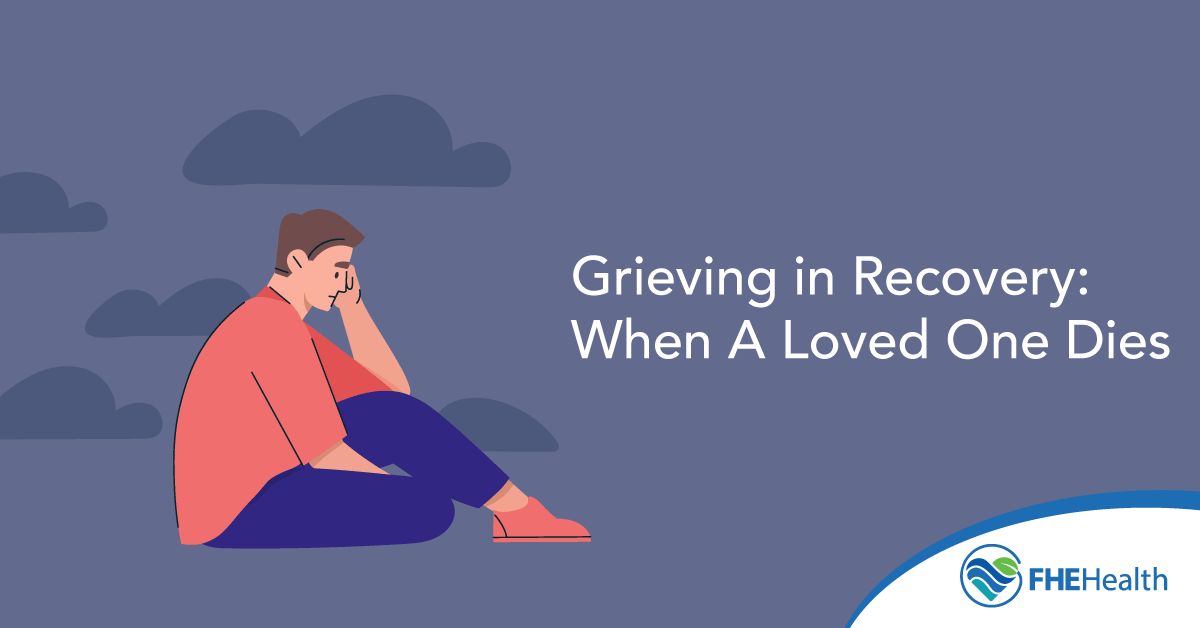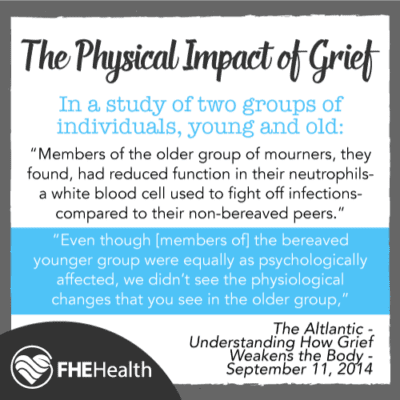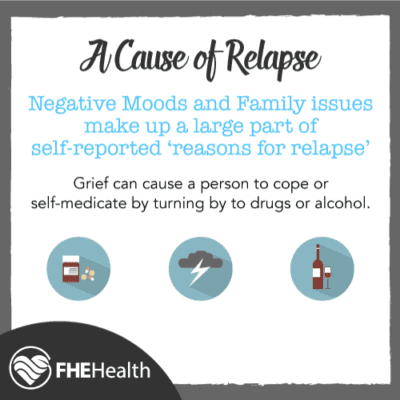
Recovery from addiction, no matter what shape it takes or the stage it’s in, is an emotionally taxing time for most people. Being able to resist the strongest temptations and make sweeping changes to your life isn’t easily done. When grief and recovery are combined, the difficulty of recovery is amplified. Losing a loved one can bring great sadness for anyone, but for someone in recovery, it can be an earth-shaking event, one that’s almost certain to lead to relapse and starting over from square one.
How Grief Affects the Average Person
Grief over the loss of a loved one is one of the most intense emotions a person can experience. We’ve long known this, but multiple studies give us scientific proof.
Scientists have long observed a phenomenon in spouses involved in long-term marriages. When one spouse dies, the other one often isn’t far behind. Researchers from the University of Birmingham set out to answer the question of whether this is just a coincidence or whether actual science supports a degenerative effect of bereavement.
The study found that grief had a physical and mental effect on couples, mostly at advanced ages. It actually weakens the immune system.
Grief: A Connected Pathway with Addiction
When we consider the ways grief affects those in recovery, we have to mention the role that grief plays in a complex connection with the mental health of those experiencing it.
Grief can prompt a person to cope by using drugs or alcohol, whether they had previous substance abuse issues or not. One reason is depression. Grief is well-known to cause short- or long-term depression, even in people without a genetic or behavioral tendency toward the condition.
Many depressed people turn toward extreme coping methods. As they move through the stages of grief, alcohol and drug use and abuse help numb the pain.
No matter what prompted a substance use disorder (SUD), it’s likely most people with one have grown accustomed to using their addiction as a coping method. It’s a way to dull the pain and other negative emotions of events or circumstances they’re looking to escape. This is why grief can be such a powerful trigger for those in recovery. When extremely negative emotions arise, the natural response is to slip back into old coping mechanisms.
Interestingly, studies have shown that while people may get the detachment from reality they’re looking for out of drug and alcohol abuse to cope with grief, these coping methods also prolong the negative feelings and depression that come with tragic events.
What Happens When a Person Loses a Loved One While In Recovery?
Recovery is difficult, especially in the early stages, and people in recovery can be emotionally fragile. This happens for a few reasons:
- The loss of a major habit. Especially in long-term addiction, the compulsion to use is more than just a strong urge. It’s a major part of a person’s life, and on a small scale, it’s almost like the addict is grieving the loss of themselves in the earliest stages of recovery. Consider the effect of more grief on top of this and it’s easy to see why people with SUD are especially susceptible to loss during this sensitive time.
- Coping with change. Recovery is associated with major change. As a person puts negative behaviors behind them, the change comes in the form of growth, but it’s a change into something new and unfamiliar nonetheless. In some cases, having to turn your back on family or friends who aren’t positive influences on your sobriety may feel like you’ve lost them, which can spark grief in and of itself.
- Frustration and temptation. It’s not uncommon for people in recovery to struggle with the urge to use or the frustration and hopelessness of feeling like they’re never going to succeed. Because of these feelings, they can be in a very delicate emotional state, unprepared to deal with potential grief from the loss of a loved one.
How Do You Manage Grief in Recovery?
We’ll start with a blunt statement: Losing a loved one while in recovery can be one of the most stressful and trying times of your life. Managing grief and recovery at the same time isn’t easy, but coping is possible.
It’s important to remember to try to resist the types of negative feelings that would have driven you to use drugs in the past. Here are a few ways people with SUD deal with losing loved ones in recovery.
Lean on a Support Community
One of the many benefits of rehab in a facility that offers care and support at various levels is the type of positive community you have access to. Whether it’s an alumni community or a 12-step support group, that’s what your sober community is there for: providing support through the hard times and helping you stay on your path to recovery.
Face Your Emotions
Grief has a profound effect on recovery. For someone who has spent years trying to escape, it can be especially jarring when you have to face the full, raw emotion that comes with loss.
This is part of the origin of the intense urge to relapse in the face of grief. Most people with SUD have used drugs or alcohol to escape negative circumstances and feelings, so this is their natural response to loss.
It’s important to remind yourself that this won’t be constructive and that reverting back to old ways will also revert you back to square one of your recovery.
Create a Trigger Plan
Although waves of grief can hit at any time, there are moments when you expect to feel the sting. Many people feel a loss most strongly during holidays, anniversaries and special occasions. Visiting places that were special to you both or seeing photos and mementos can also trigger the feelings of loss.
If you know what events will trigger your grief, you can have a plan in place before they happen. Talk to your care team or work by yourself so you know how to handle those feelings. This stops you from reacting without thinking and potentially reaching for old coping mechanisms.
Use Your Grief as an Opportunity
Hearing someone say “Make the most of your loss” can be puzzling, but there actually are constructive ways to spin grief. During your recovery, you’ve developed tools to overcome obstacles that may arise and tempt you to relapse. This is one of those obstacles, and while it may be painful, it can be used as an opportunity to put your positive coping skills into action.
Substance Use Disorder and Complicated Grief
Loss is difficult for everyone to manage, but for some people, it can become debilitating. Complicated grief is also called prolonged grief disorder or persistent complex bereavement disorder. It’s when feelings of loss significantly impact life and don’t improve over time. In these cases, recovery from grief can be just as difficult as recovery from SUD.
Studies have found links between SUD and complicated grief. It’s estimated that between 2% and 22% of the general population experience complicated grief, but 34% of people with SUD have the disorder. This may be due to the fact that those with SUD have less adaptive coping methods. Another theory is that people with SUD have more complex trauma. They’re often dealing with multiple losses at once or have other issues to manage at the same time as their grief.
Symptoms of prolonged grief disorder include:
- The inability to focus on anything but the loved one’s death
- Extreme focus on or avoidance of reminders of the loved one
- Intense and persistent longing for the deceased
- Lack of trust in other people
- Inability to enjoy life
- Numbness or detachment
This type of loss can cause challenges for someone in recovery who may be tempted to numb the feelings with substances. If you recognize these symptoms, know that all the previous tips can help with overcoming complicated grief. However, you may also benefit from specialized bereavement counseling or additional therapy. Make sure to speak to your doctor or care team, especially if you’re at risk of self-harm.
Get Help to Manage Your Grief and Recovery
Grief is difficult for anyone, but especially so for people in recovery from addiction. While it can be enormously hard to cope, the right rehab programs can give you the tools you need to use loss as an opportunity for personal growth during recovery. If you or a loved one is struggling with addiction, contact FHE Health today and learn how you can get lifelong support.








